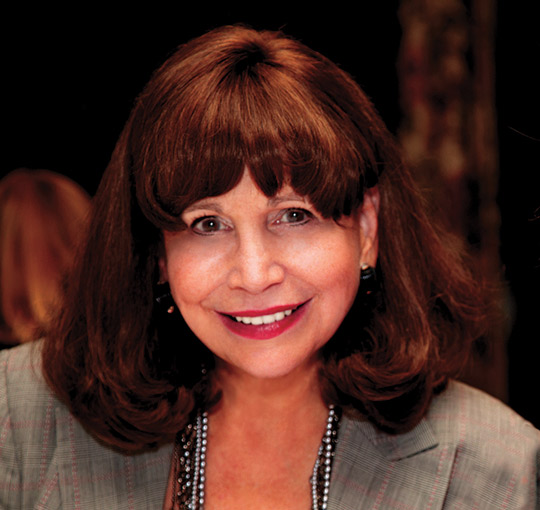Letter from the President
Dear Friends,
In his 1986 book, Apprentice to Genius: The Making of a Scientific Dynasty, Robert Kanigel describes the chain of mentorship that ran from Bernard Brodie, the pharmacologist who helped develop acetaminophen, to Julius Axelrod, the Nobel Prize-winning biochemist who characterized the workings of neuro-transmitters, to Solomon Snyder, who first identified receptors in the brain that govern perception of pain and pleasure. Near the end of the book, a student
of Snyder’s, Gavril Pasternak – now a prominent cancer researcher – speaks of Snyder as his “professional father” and Axelrod as his “grandfather.”
As you will discover in this annual report, strong leaders across all fields typically set clearly defined goals, model successful behavior and empower others to think creatively and act responsibly. But Kanigel’s book highlights still another crucial aspect of good leadership: the ability to prepare others to lead as well.
During at least two key stages in my career, I have worked with a phenomenal leader. The first was Donna Shalala, my doctoral adviser at TC, who later served as U.S. Secretary of Health and Human Services and is now President of the University of Miami. At TC, Donna engaged her students as full-fledged members of an intellectual and professional community, even contracting for us to help to reform Connecticut’s school finance system, a project that became the basis for many dissertations.
Later, as Dean of the Graduate School of Education at the University of Pennsylvania, I worked for Judith Rodin, the university’s President (and now President of the Rockefeller Foundation). Judy and her leadership team rallied the entire Penn community to launch a new, university-assisted neighborhood public school for pre-K through 8th grade, to help manage three other local public schools, and in general to make West Philadelphia clean, safe and vibrant for everyone.
In retrospect, I can see that Donna Shalala and Judy Rodin not only inspired me to build on their work, but also helped prepare me to become a leader of leaders. I want Teachers College to unite the work of its faculty and students under the banner of three big ideas that cut across our different departments: learning, comprehensive opportunity in the public schools, and policy. I want TC to take the lead in tackling society’s most pressing problems and to lead by example, as we are doing with the Teachers College Community School and our Harlem Schools Partnership. And I want us to continue empowering our students and colleagues to serve as transformational leaders in their professions, fields and organizations.
You don’t have to be the president of a college, or even someone who directly manages other people, in order to exert leadership. All of us, at points in our professional and personal lives, are called upon to help set the direction for others. As you read this annual report, I hope you will marvel, as I do, that so many fine leaders have come from Teachers College. Take a moment to reflect on how you lead in your own work and on the people who have influenced your thinking. While much may have changed, I’m guessing you’ll find that the power of their ideas has only increased with time.
Susan Fuhrman (Ph.D. ’77)
Published Wednesday, Feb. 20, 2013
